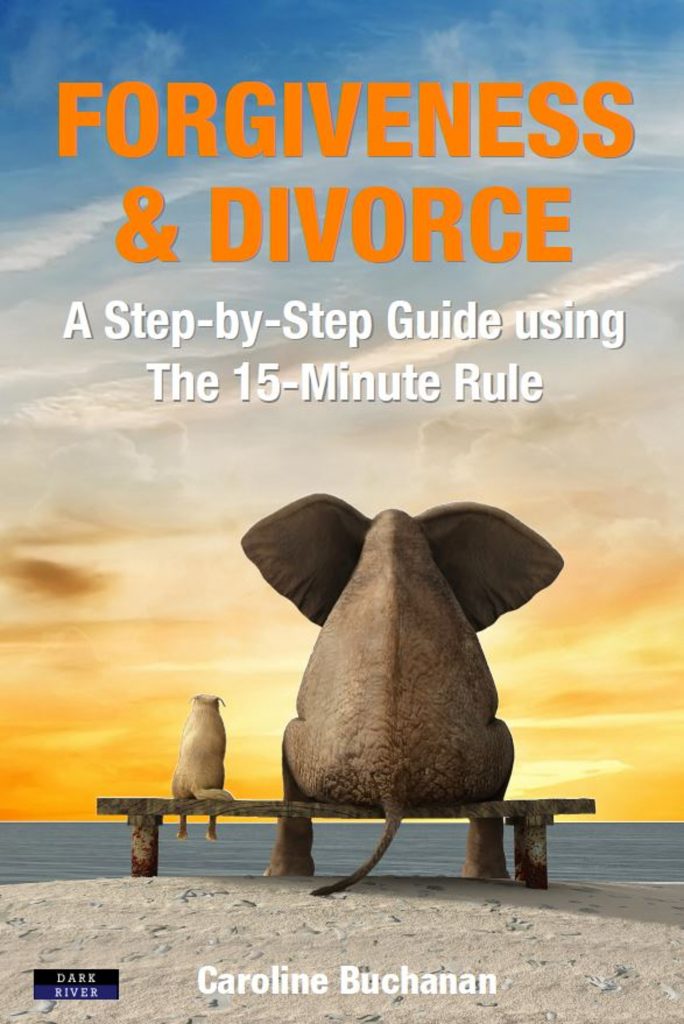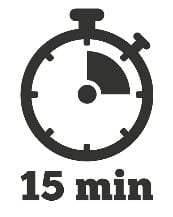
This forgiveness stuff is all very well for someone else, you might be thinking, but surely it cannot be this simple? Do you feel it’s different for you? You cannot possibly forgive that person for what they did and/or you can’t ever forgive yourself for what you did – or didn’t do.
You’re very angry with yourself – or A. N. Other.
Let’s look at it another way. Anger and resentment, expressed or not, hampers us in a way we might not fully understand. If we lose our temper, do we analyse exactly what happened? Do we take responsibility for our behaviour, no matter what the other person has said or done? If not, how can we possibly stop doing something that leaves us feeling awful time and time again? Or do we bury our anger and resentment, stuffing it all down because it’s too scary or uncomfortable to tackle? The thing is… all that energy could be put to much better use.
It’s helpful for us to reflect on the following quotation:
‘Resentment is like swallowing poison and expecting the other person to die.’
It suddenly dawned on me a few years ago that many people fall into the category of blaming other people for everything (blamers), or conversely, blaming only themselves. I call them blamees. Sometimes people switch from one position to the other, before settling into the place that feels like home.
Of course, there are the healthy folk – the enviable ones we all aspire to be – who take full responsibility for their mistakes but don’t take on everyone else’s, to boot. The question here is – how do we get there?
The following might help you to see if you are a blamer or a blamee (if you don’t know).
You discover your partner has cheated on you with a close friend.
Do you (or maybe did you):
– End both relationships, saying you can never trust either of them ever again?
– Feel it’s possible you have contributed to this double betrayal in some way or another?
– Wrack your brains for exactly where you went wrong?
Of course, there is no right or wrong answer to this question; it depends entirely on where you’re coming from. You might well jump from one option to another, but deep down one of the choices will feel more familiar to you than the others…
Awareness has got to help enormously. Now you’ve answered the question, you may know which camp you fall into. Turn the question onto your own life. Is there anyone out there that you’re blaming for the end of your relationship? Alternatively, in your own world, what are you blaming yourself for?
Task 11: Who Do You Blame?

In this 15-minute task, you need to record your thoughts and become aware of your blame game.
As a Relate-trained couples counsellor, I soon learned about marital fits. It’s where people have got together because consciously and/or unconsciously they recognise each other, perhaps before they even know whether or not they take sugar in their tea.
By recognition, I mean they are attracted because the person feels so familiar in some ways, probably because they have traits similar to those of the adults who brought them up. Opposites attract too, of course; wanting something they don’t feel they have in themselves. So, blamers and blamees are going to be subconsciously attracted to each other, aren’t they? Why wouldn’t they be? It really suits a blamer to have someone up close and personal on whom he or she can blame everything that goes wrong.
Likewise, it fits with the blamee who is utterly used to blaming him- or herself for everything that’s not right. ‘Give me your s*** and I’ll carry it for you!’ says the blamee unconsciously. Very neat and tidy on the surface then, but what a horrendous mess underneath. A marriage made in hell.
The roots for both blamers and blamees (B&Bs from now on) will undoubtedly go back to their families of origin. And with a bit of detective work, it won’t take long to locate the problem.
Until recently, I fell into the category of blamee. Most blamees have been traumatised as children. My default position was if something was wrong then it must be my fault. I can see where it all started, but I know it’s not all my fault in my heart (as well as in my head) now.
Blamees typically suffer with low self-worth. Furthermore, they will always feel not good enough and will often feel downright bad. None of which are good ingredients in relationships with ourselves or indeed others.
On researching my B&B subject, I found people who take the blame for everything are often highly sensitive and – naturally enough – have a tendency to be over-responsible. You’re not kidding – and it’s an exhausting way to live! Heaping layer upon layer of blame upon themselves, blamees carry so much unnecessary heavy luggage around all the time.
Many Blamers, on the other hand, have also been traumatised as children but they choose the flip side of the coin to express it. They may really struggle with accepting certain things that have happened. It’s just too scary for them to look at themselves, so it has to be someone else’s fault. They can’t admit their failings, and haven’t learned to take responsibility for their actions. They are self-appointed ‘victims’ of other people’s behaviour and they often feel helpless and out of control. Many go on to become control freaks as a direct result.
They are prone to ‘splitting’ too. They will choose to make someone ‘all good’ or ‘all bad’ in their heads instead of accepting that there’s a bit of good in the worst of us, and a bit of bad in the best of us!
Both B&Bs may well have emotional neglect in their backgrounds but the way forward is to acknowledge this – as uncomfortable as it may be to face it – and make the decision that as an adult, you will now choose to treat yourself with love and care. No more neglect.
Blamers need to take back their projections and see the huge benefits of taking their fair share of responsibility as adults. The next time they find themselves blaming someone, they need to remember that they will get so much more out of calming right down and committing to looking at the situation with complete honesty. As an example: ‘She’s let me down again. Women always let me down! They are not to be trusted.’ If a man finds himself saying this again and again, then he’d better start owning where those feelings originate from, or he’ll keep repeating his pattern. Once he understands where he came from, and what he needs to change, he will be in a much better position to make healthy relationships. It will transform his life.
Blamees need to become realistic and offload inappropriate responsibility. ‘I always pick the wrong men!’ was one of my refrains until it just occurred to me that the men in question had a say in our relationships too! I used to blame myself entirely for my choices, but it does take two to tango. However, I was horribly drawn to emotionally unavailable men because it was what I grew up with, and so therefore it felt very familiar.
B&Bs have often both had difficulties in accepting their powerlessness as children, and have consequently gone into survival mode. At some level, a blamer can be subconsciously frightened of annihilation – as strong as that sounds – if he or she owns up to anything, and a blamee can be subconsciously frightened of annihilation if he or she gets anything wrong. They are also scared to face the horror that someone they loved so much caused them so much pain.
But we’re grown-ups now and we need to shed outdated (and now unhelpful) coping mechanisms. We also need to STOP blaming, altogether, be it other people or ourselves. Let’s look at responsibility instead, and make decisions with our adult heads to heal our child hearts.
